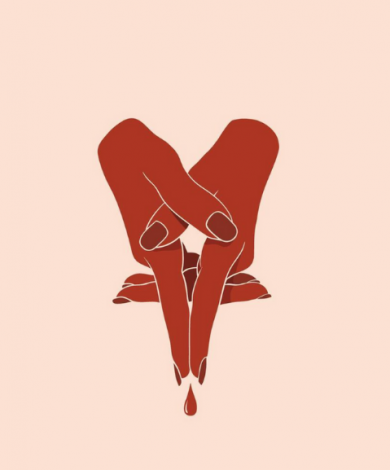Birth is a trauma that requires recovery. It is raw, bloody, and doesn't fit into…
Self-Care
3 Cultures Devoted to Nurturing New Mothers & Traditions You Can Integrate Into Your Fourth Trimester
January 31, 2022 • By Laureen Austin

I define the fourth trimester as the first 12 weeks after childbirth and postpartum as your entire life after childbirth. The fourth trimester specifically is a critical period where the mother is healing and recovering from childbirth, bonding with the baby, and transitioning into motherhood.
While it’s a beautiful, transformational time, this time is also tough on your body, mind, and soul. You’re adapting and adjusting to multiple physical, psychological, and social changes. It can be argued that the first twelve weeks postpartum are even more demanding than pregnancy.
Clearly, this is the time when mothers need more care, not less. So, why is it that mothers get less support and are left alone to navigate the fourth trimester? Mainly because our healthcare payment system typically pays for only one or two routine postpartum visits.
Another eye-opening reason is that our culture does not value the role of mothers and their impact on the family as compared to other developed countries.
In the U.S., there are no traditions around nurturing the mother in the fourth trimester. None! We support mothers to achieve a healthy pregnancy, labor, and delivery, but we fail at preparing mothers for what happens after. Starting to educate and support mothers is crucial to their long-term health and well-being after childbirth.
Now, I could go into the statistics and tell you what you already know about maternal mortality rates here in the U.S. compared to other developed countries, but that doesn’t help us move forward. And that’s what I’m here to do. Help you create a better, more nourishing, smooth recovery and transition into motherhood.
Since we don’t have any traditions here in the United States, the next best thing is to explore the many other countries and cultures who have better maternal health outcomes.
Latin America
Many countries observe “La Cuarentena,” which means quarantine. Mothers are graced with 40 days of rest, focusing on herself, learning how to feed her baby, and bonding. There are bathing restrictions and cold water bathing is prohibited. All in service of avoiding future ailments. Female family members help with cooking, cleaning, and taking care of any other children. The mother is treated to herbal remedies, homemade broths, and abdominal wrapping to nourish and warm the mother to aid with recovery. [2,3]
Asia
The Chinese tradition is for mothers to observe Zuo Yuezi which is “sitting the month.” During this 30 day “confinement,” female relatives take care of the mother and the household. The belief is that the mother’s yin and yang are out of balance from pregnancy (yang/warm) to non-pregnancy (yin/cold) which makes her susceptible to exhaustion and illness. Food rituals include high protein, hot foods for nourishment and warmth to restore balance and harmony. Easily digestible and iron rich foods are also prioritized to build sufficient breast milk supply. Cold foods such as raw vegetables, fruit and salads are avoided. [3,4] Learn more about foods to favor and avoid postpartum here.
India
Mothers typically return to their parents’ home for up to THREE months for rest and recovery. Female family members do all the cooking which includes soft, nourishing, and easily digestible foods like soups or warm milk with ghee and spices to restore the mother’s depleted state. Ayurvedic herbal tonics are used to restore energy, boost immunity, and promote lactation. Drawing from Ayurveda, new mothers receive daily warm-oil massages to soothe the nervous system by calming the excess “vata” or “wind” in their system. [3,4]
So beautiful, right? The three lessons I think we can pull from these three cultural traditions to improve our postpartum experience:
Rest to Recover
The fourth trimester is your sacred time to rest, recover, and grow into your new self as mother. The importance of rest to recover is underestimated in the United States. This is the time to slow down and listen to your body. Your days may feel long and tedious and blur together, but that’s ok! It could take several weeks before you feel human again. Give yourself permission to not do it all or try to please others. This is your time to rest, heal, and recover for the sake of your personal health, your baby’s health, and your family’s health.
Ask & Accept
It can be so hard to ask for help and this is the time to embrace that challenge. Practice asking and accepting help. Start by asking for one small thing, maybe a refill of your water, until it feels more comfortable. Take it to the next level by accepting offers from friends and family when they stop by. Once you start accepting help, it will get easier and easier until it becomes second nature to you. Your support team genuinely wants to support you and your family.
If you don’t have a support team nearby or at all, join a mom’s support group or community that centers around nurturing mothers. There are online communities ready to accept you and your individual needs. Building a community with other moms will lift you up and hold you. If you’re looking for a community of like minded moms looking to elevate the postpartum experience, check out pstprtm’s Mom Pods.
Reflect & Recharge
When a baby is born, everything changes. Give yourself time and space to consider your new identity, needs, fears, hopes, and dreams. Reflect on your birth experience and begin to process what you have done. Writing your story can be extraordinarily therapeutic and cathartic. Learn more about the power of storytelling here.
Becoming a mother is transformative. And you deserve to feel supported, guided, and cared for as you make such a massive transition. I hope you feel inspired to borrow some of these worldly traditions and customize them to your needs. You can plan and create your own postpartum experience now. And create a ripple effect that will start to shift our cultural perception to honor the mother deeply.
Source:
[1] Maternal Mortality Maternity Care US Compared 10 Other Countries | Commonwealth Fund
[2] Bringing back the Hispanic tradition of “cuarentena” after childbirth | BabyCenter
[3] Ou, H. (2016). the first forty days. Stewart, Tabori & Chang
[4] Traditional postpartum practices and rituals: a qualitative systematic review
2007 Future Medicine Ltd ISSN 1745-5057w, Women’s Health (2007) 3(4), 487–502

